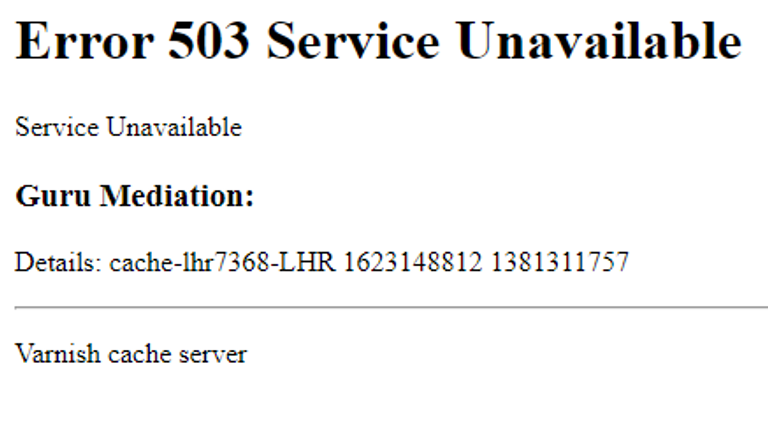A huge global web outage is always slightly shocking.
We’ve come to expect that websites like Twitch, Pinterest, Reddit, Spotify and the UK government site, gov.uk, are there when we want them, so when they’re suddenly unavailable, or even just a bit slow, it feels outrageous.
In truth, what’s outrageous is that these sites don’t go down more often. When you think of the problems they’re wrestling with, it’s amazing that they exist at all, let alone in the instantaneous way we take for granted.
Consider just one of those problems: the speed of light.
The internet is built on a network of fibre-optic cables that transmits information in the form of pulses of light. They’re incredibly fast, but they still have a limit, because nothing can ever travel faster than the speed of light.
That means that if you’re in the UK and you want to access a website which stores its data in the US, it will take a few extra milliseconds to get here, even if the fibre-optic cable runs directly (and in practice it never does).
Over time, this delay will slow things down, making it impossible to stream videos or music or even pay for a product online.
The solution to this problem is to create a local store of the data you want, so that you can access it without having to wait for it to travel from its home.
Of course, this is easier said than done, because the “you” in this instance is every internet user in the world. That means having local stores, or “edge servers”, all around the globe.
You might think this sounds like unimaginably hard and complicated, and you’d be right. But that’s how the modern web works, using a service called a Content Distribution Network, or CDN.
Think of a CDN as a digital equivalent of the Amazon delivery system. Your order might go to the Amazon mothership, but the thing you ordered gets sent from your nearest warehouse. CDNs do this sorting on behalf of websites, making them a central part of modern web infrastructure. (They also play a key role in security as well.)
Of course, that centrality is also a weakness. If a CDN goes awry, even briefly, then it can take lots of websites with it. That was what happened on Tuesday morning when a CDN called Fastly experienced an as-yet-unexplained issue, pushing a huge range of sites briefly offline.
The problem was fixed very quickly, with full service restored in a matter of hours, but it’s another reminder that the web is only as good as its many different parts.
We might take this as a cautionary tale about the fragility of the web. Given how much we depend on it, that is an important lesson.
But as this issue was resolved so quickly, I prefer to see it as a reminder of the miracle of the web’s existence, supported as it is by the work of hundreds of thousands of unsung engineers.
The real shame, to me, is that we only ever see their work when it goes wrong. The Romans built aqueducts and the Victorians built train stations, but we have hidden 21st century infrastructure away in anonymous grey boxes.
Imagine if we all knew exactly where we were getting our websites from because there was public architecture that celebrated it. At the very least it would give us something to visualise next time our favourite site is down.

